Key takeaways:
- Selective mutism is an anxiety-based condition where individuals, especially children, can speak comfortably at home but struggle to communicate in social settings, highlighting the need for empathy and understanding.
- Building confidence is crucial for overcoming selective mutism, as enhanced self-assurance can lead to improved communication and social interactions.
- Effective strategies to boost confidence include positive self-talk, gradual exposure to speaking situations, and relaxation techniques.
- Supportive environments, like encouraging classrooms and communities, significantly contribute to an individual’s confidence and emotional growth.
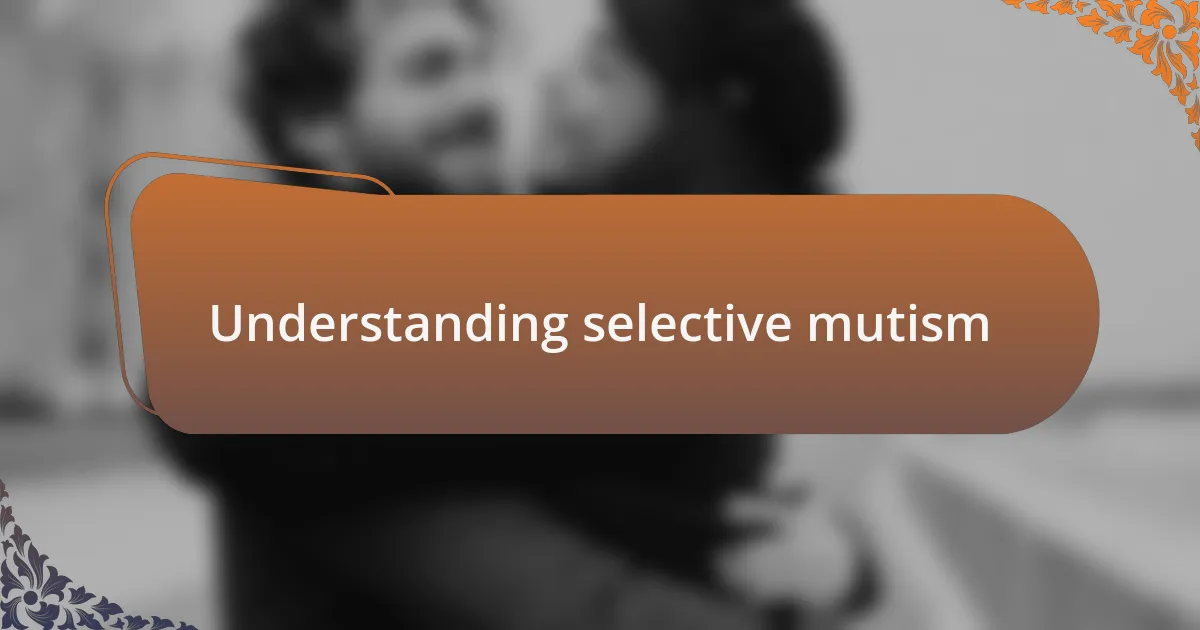
Understanding selective mutism
Selective mutism is a complex anxiety-based condition that often manifests in social settings, where individuals, particularly children, struggle to communicate verbally despite having the ability to speak in comfortable environments. I remember meeting a child who was incredibly vocal at home but simply froze in the classroom. It made me wonder—what goes through their minds during those silent moments? It’s a blend of fear and pressure that can be overwhelming.
The causes of selective mutism can vary widely, often rooted in social anxiety, temperament, or past experiences. It’s fascinating how a seemingly ordinary situation can trigger intense feelings of vulnerability for someone prone to this condition. I’ve seen firsthand how a child’s past stressful experiences can create walls that are hard to break down, making those moments of silence feel like a fortress, rather than a lack of words.
Understanding selective mutism is crucial for providing the right support to those affected. It’s not just a lack of speech; it’s an emotional barrier that requires empathy and patience. Have you ever been in a situation where speaking up felt daunting? I know I have. It helps to create a safe space and nurture their confidence, so they can gradually find their voice again.
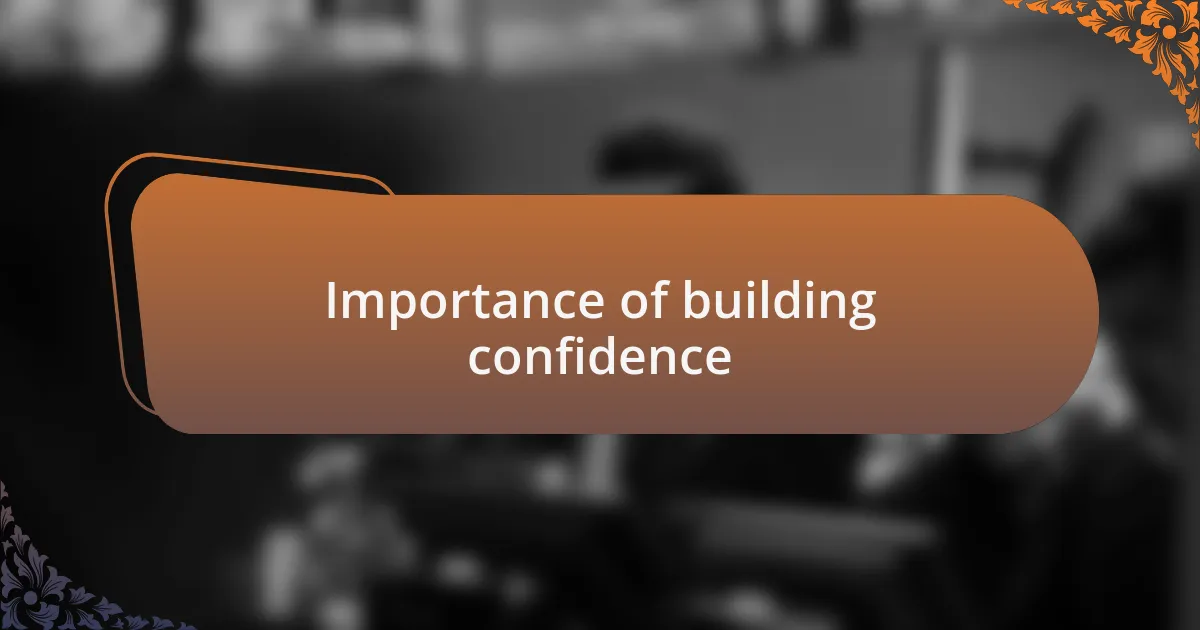
Importance of building confidence
Building confidence is essential for anyone, but for those with selective mutism, it becomes a lifeline. I recall a moment in my own life when I faced an audience for the first time. The sheer terror made my heart race, yet, as I pushed through, I discovered an inner strength I didn’t know I had. Confidence, I learned, empowers us to confront our fears rather than succumb to them.
When individuals develop their confidence, they often experience a profound shift in their ability to communicate. I remember a young girl in a workshop who barely whispered at first. As she participated more, I noticed her posture change—shoulders back and eyes bright. The transformation was remarkable, highlighting how enhanced self-assurance can foster not just speech but overall connection with others. Have you ever felt that exhilarating surge when you finally said what’s on your mind? That feeling is what we aim to cultivate.
Moreover, confidence can create a supportive environment that encourages social interactions. I’ve seen how children blossom when they are surrounded by understanding individuals who cheer them on. It’s almost like watching a flower bloom in the sunlight. This supportive atmosphere can significantly reduce anxiety and promote verbal communication, bridging the gap that selective mutism often creates. Isn’t it incredible how a simple gesture of encouragement can pave the way for someone to find their voice?
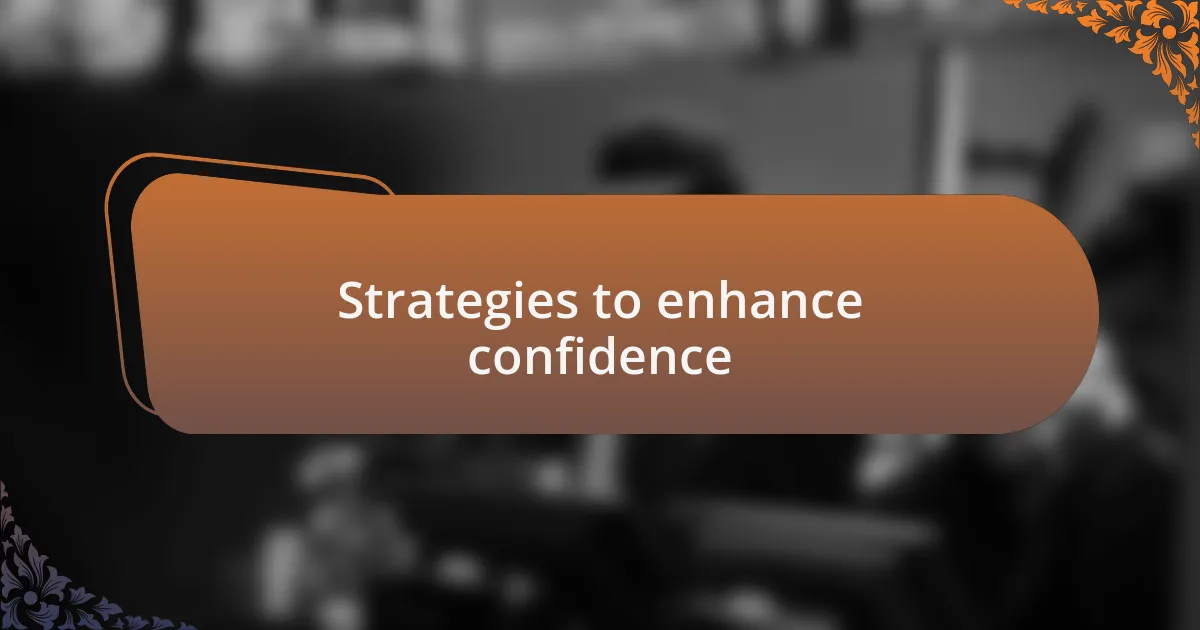
Strategies to enhance confidence
One effective strategy to enhance confidence is through positive self-talk. I remember finding myself in a tough spot before a big presentation, doubting my abilities. I started telling myself, “I am prepared, and I can do this.” Those simple affirmations shifted my mindset entirely. When I began to believe in my own words, I noticed a boost in my performance as well. Have you tried speaking kindly to yourself? It can be a game changer.
Another approach is gradual exposure to speaking situations. One of my friends, who also struggled with confidence, took small steps by starting conversations with friendly baristas at her local coffee shop. Initially, it felt daunting, but over time, her confidence grew alongside her comfort level. Each time she spoke, she learned that her voice mattered. Isn’t it fascinating how each small success builds on the last, creating a ripple effect?
Incorporating relaxation techniques can also contribute significantly to confidence enhancement. I recall attending a mindfulness workshop where we learned breathing exercises designed to calm nerves before speaking. Practicing those techniques transformed my anxiety into focus. Now, I consistently use those tools before any public speaking event. Have you ever noticed how your body reacts to stress? By taking control of our physiological responses, we can free ourselves to express what’s truly on our minds.
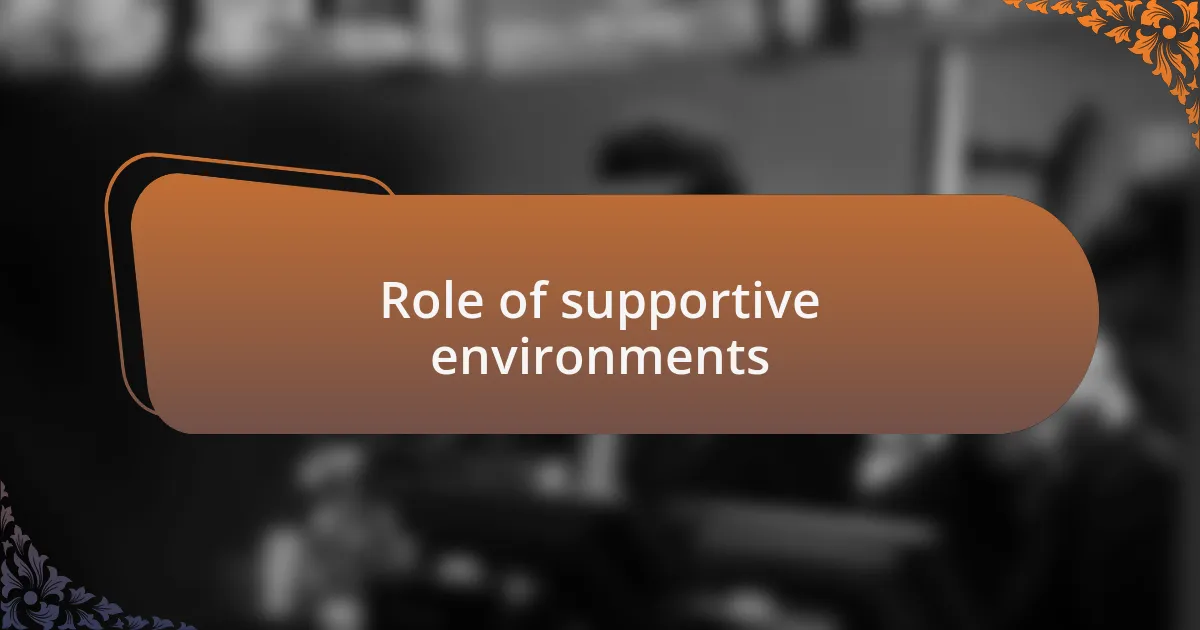
Role of supportive environments
Supportive environments play a critical role in boosting confidence, especially for those dealing with selective mutism. I once volunteered in a classroom where the teacher created a safe space for all students to express themselves without judgment. Every timid voice was welcomed, and watching those kids come out of their shells taught me just how powerful encouragement can be. Have you ever been in a situation where the right atmosphere changed everything?
In another instance, I joined a local community group focused on public speaking. The members were not just supportive; they celebrated each other’s achievements, no matter how small. This constant reinforcement helped me recognize my own potential. I often wonder how different my journey would have been without that nurturing backdrop. Realizing that I wasn’t alone in my struggles made every practice session feel like a step forward instead of a daunting task.
Additionally, having a few close friends who understand my challenges has been invaluable. During hard moments, I recall sitting in a cozy café, surrounded by my friends who offered nothing but uplifting words. Their belief in me sparked a light in my own self-perception. Isn’t it incredible how the right people can help illuminate our paths? I truly believe that supportive environments not only nurture our confidence but also help us grow emotionally and socially.
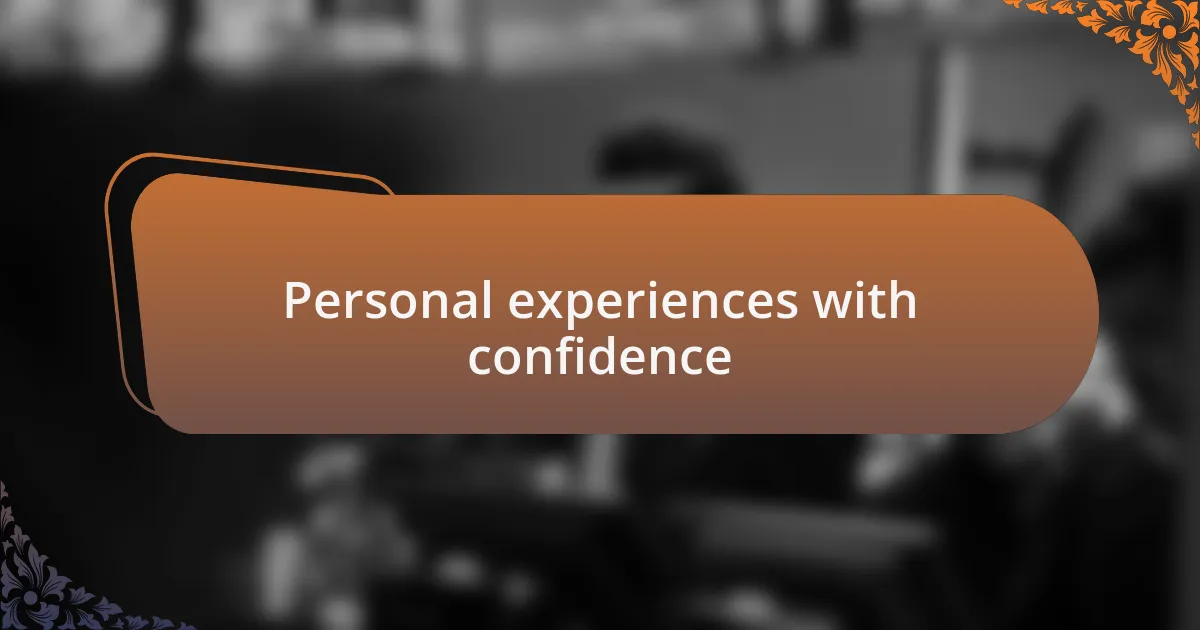
Personal experiences with confidence
Building confidence often feels like a journey filled with small victories and setbacks. I remember the first time I had to present in front of my peers; the nervousness was overwhelming. Yet, after sharing a story that resonated with many, I saw nods of understanding and empathy—a reaction that unexpectedly filled me with a sense of accomplishment. Have you ever felt that surge of confidence just from being heard?
Looking back, I can pinpoint moments when my confidence surged unexpectedly. For instance, during a theater workshop, I was pushed to step out of my comfort zone and perform in front of an audience. Surprisingly, the applause felt like more than just an appreciation of my acting—it was an affirmation of my ability to connect with others, reaffirming my worth. Isn’t it fascinating how stepping into vulnerability can sometimes unlock hidden reservoirs of strength?
There have also been quieter but equally impactful experiences. One time, a mentor took me aside after a presentation and told me I had a unique voice that mattered. Those simple words lingered with me, reinforcing my belief in my perspective. Sometimes, it just takes one person to plant a seed of self-belief, making me ponder—who in your life has inspired you to see your own worth?